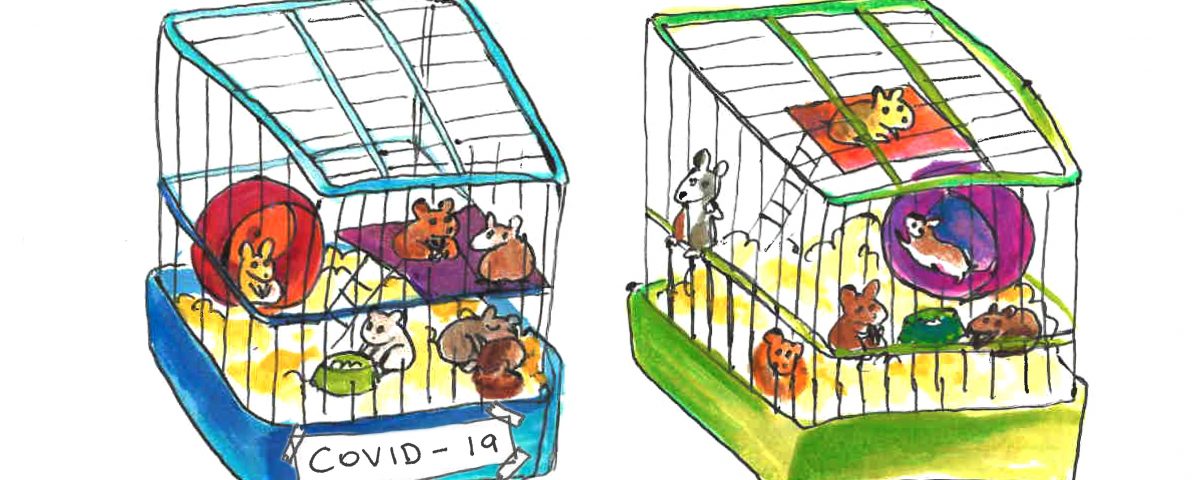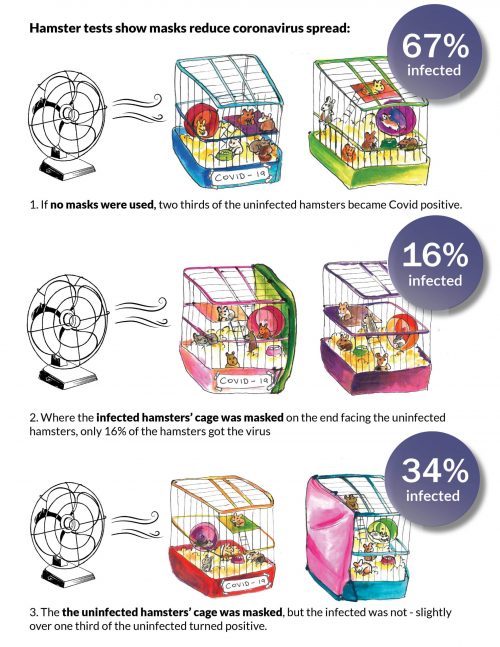
Masking help?
 The most recent research out of Hong Kong University should catch your eye. It certainly caught mine.
The most recent research out of Hong Kong University should catch your eye. It certainly caught mine.
Their creative study* asked the question that we all want answered: do face masks make a difference in slowing down the coronavirus? After all, the World Health Organization (WHO) and the Center for Disease Control (CDC) both suggested that people should not wear face masks as a protective mechanism during the pandemic. While both the WHO and the CDC ultimately reversed course, the public understandably, myself included, were confused. Were masks needed or not?
Professor Yuen Kwok-yung, an infectious disease microbiologist and early identifier of SARS at the Hong Kong University, used coronavirus-infected hamsters to test whether a surgical mask was effective in protecting other hamsters. In the first experiment, no hamsters, neither the infected nor the uninfected, were “masked.” In the second, the infected hamsters’ cage was masked but the uninfected hamsters’ cage was not. Lastly, the infected cage was not masked, but the uninfected hamsters’ cage was masked. What do you think happened?
If no masks were used, two thirds of the uninfected hamsters became Covid positive. In the second group, where the infected hamsters’ cage was masked on the end facing the uninfected hamsters, only 16% of the hamsters got the virus. And in the last experiment, slightly over one third of the uninfected turned positive. So a mask on the end of the uninfected group cage helped, but not to the degree of the mask on the infected cage. Is Professor Yuen comparing us to hamsters?
What Yuen is saying is that if 80% of the public wear masks, the coronavirus can be slowed just as much as a lockdown and social distancing. Which is why Hong Kong residents don’t hesitate to wear masks and why, despite the density of their population, their Covid-19 results are superior to most other densely populated communities.
The Mayo Clinic on May 19th (https://www.mayoclinic.org/diseases-conditions/coronavirus/in-depth/coronavirus-mask/art-20485449) and Johns Hopkins on May 1st (https://www.hopkinsmedicine.org/health/conditions-and-diseases/coronavirus/coronavirus-face-masks-what-you-need-to-know) both agreed that non-medical masks can protect us.
What are you going to do? Tomorrow or in the fall/winter flu season?
Joseph M Jenkins MD**
June 26,2020
*Hamster tests show masks reduce coronavirus spread: scientists (2020, May 17) retrieved 25 May 2020 from https://medicalxpress.com/news/2020-05-hamster-masks-coronavirus- scientists.html
** Represents the opinion of the author and not the opinion of CUI
*** Artwork by Magda Granger
